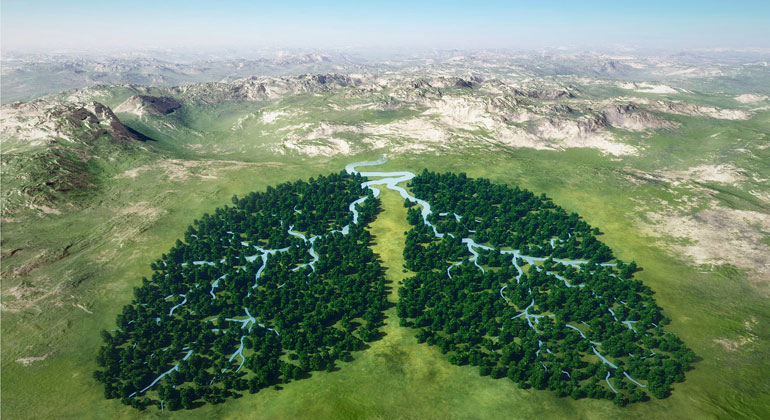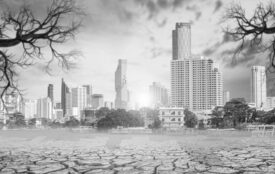How climate change is making us ill
Climate change scares many people. However, this fear only becomes pathological when it is so great that everyday life can no longer be managed.
Then it is an anxiety disorder, says Martina Winkler, senior physician at Radical Park in Bernau am Chiemsee and specialist in psychosomatic medicine.
Heatwaves, droughts, floods – the consequences of climate change can also have an impact on our psyche
In a survey recently published in the German Medical Journal, 71 per cent of 573 psychotherapists stated that their patients expressed concerns about the climate crisis. 41 per cent of these therapists had at least one patient who had started treatment due to climate anxiety, changes in emotional state and depression.
Andreas Meyer-Lindenberg, President of the German Society for Psychiatry and Psychotherapy, Psychosomatics and Neurology (DGPPN), also confirms that climate anxiety is on the rise in the population due to climate change. For every degree that the average temperature rises, the “extent of mental disorders also increases” – by around 0.9 per cent, he says. With 80 million German citizens, that’s quite a lot, says Meyer-Lindenberg, “if you consider that we are already well over one degree above the long-term average temperature”.
Heat in particular not only makes us more susceptible to mental disorders. It also makes us more aggressive: people honk their horns more in traffic when it gets hot. Dogs bite more. Aggressive comments on social media platforms increase in hot weather. Studies show all of this, says Meyer-Lindenberg.
People who are already mentally ill in particular are also physically at risk in the heat. According to Meyer-Lindenberg, their mortality rate triples during heatwaves.
The psychiatrist’s statements can also be found in the position paper on “Climate change and mental health”, which the DGPPN published in 2023. Post-traumatic stress disorder, anxiety disorders and depression are cited as the main effects of climate change on mental health.
According to the paper, abilities such as attention, memory and computing power could also be impaired due to air pollution and the associated climate change.
Psychiatrist Meyer-Lindenberg uses the following example to illustrate how much and for how long natural disasters caused by climate change can affect our mental health: After Hurricane Katrina hit the US Gulf Coast in 2005, “more than two thirds of the population could still be diagnosed with post-traumatic stress disorder” a year later. And “even long afterwards” there was still “an increase in anxiety disorders as well as addiction disorders”, says Meyer-Lindenberg.
What helps against climate anxiety
Climate change scares many people. This is perfectly normal, says Meyer-Lindenberg.
It only becomes pathological when the anxiety is so great that everyday life can no longer be managed. Then, according to Melanie Winkler, it is an anxiety disorder. Winkler is a senior physician at the Medical Park in Bernau am Chiemsee and specialises in psychosomatic medicine and psychotherapy.
In order to categorise your anxiety correctly and learn how to deal with it, the doctor advises you to “do a reality check”. This means checking: “What of the anxiety is real and actually justifiable – and what is exaggerated”. After all, our brain is “changeable”. And so we can “influence it in a positive way in order to better cope with things that come our way”, explains the doctor.
Source
FRANZ ALT 2024 | Translated with www.DeepL.com/Translator








